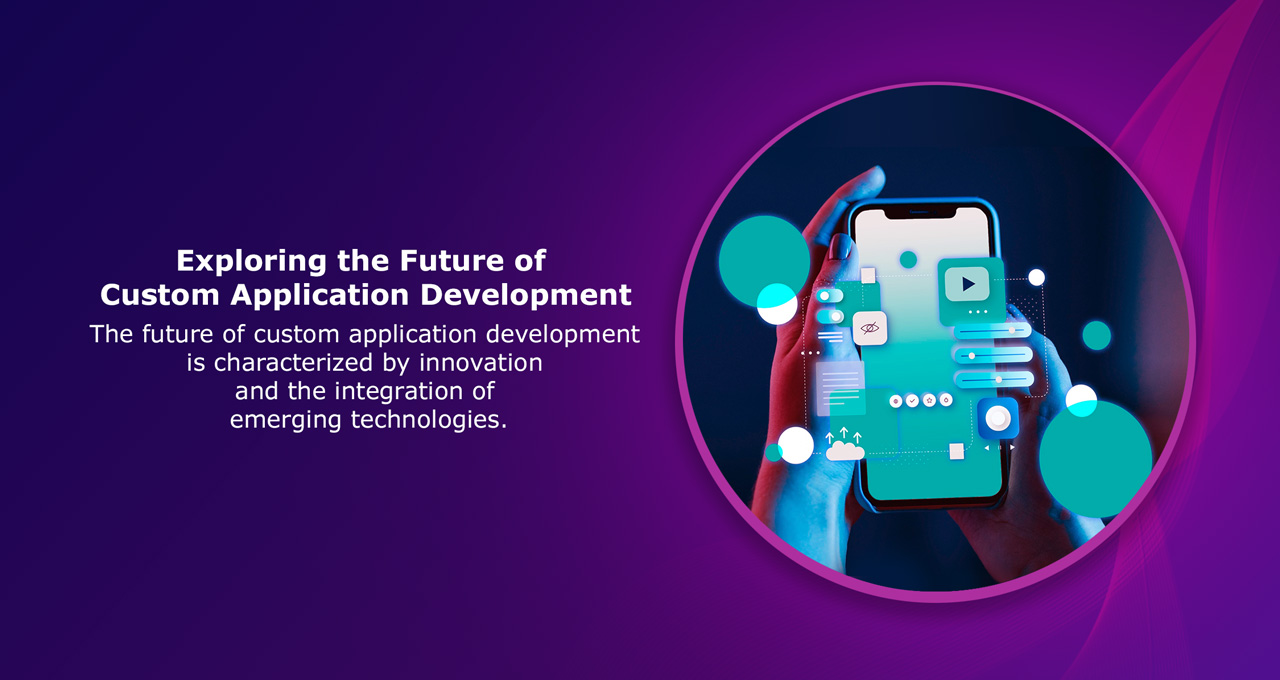
Image Credit: Image by Freepik
In today’s rapidly evolving digital landscape, custom application development has emerged as a driving force behind business innovation and transformation. As businesses strive to meet unique user needs, enhance operational efficiency, and stay ahead of competitors, the future of custom application development promises groundbreaking advancements and opportunities. In this blog, we’ll delve into the transformative trends shaping the future of custom application development and how businesses can leverage these innovations for success.
Embracing Digital Transformation: The Evolution of Custom Application Development
Custom application development has evolved significantly from traditional software development approaches to agile methodologies and low-code/no-code platforms. The future of custom application development lies in embracing digital transformation trends that empower businesses to rapidly build, deploy, and iterate custom applications to meet dynamic market demands.
Key Trends Shaping the Future of Custom Application Development
AI and Machine Learning Integration: The integration of artificial intelligence (AI) and machine learning (ML) capabilities into custom applications is poised to revolutionize how businesses leverage data insights, automate processes, and deliver personalized user experiences. AI-powered chatbots, predictive analytics, and recommendation engines are just a glimpse of the potential AI holds for custom application development.
Internet of Things (IoT) Connectivity: With the proliferation of IoT devices across industries, custom applications will increasingly leverage IoT connectivity to gather real-time data, monitor assets, and enable remote management. IoT-enabled custom applications unlock new possibilities for smart solutions in areas like healthcare, logistics, manufacturing, and smart cities.
Blockchain for Security and Transparency: Blockchain technology is set to play a pivotal role in custom application development by enhancing security, ensuring data integrity, and enabling transparent transactions. Industries such as finance, supply chain, healthcare, and legal services are exploring blockchain-powered custom applications for secure data management and streamlined processes.
Low-Code/No-Code Development Platforms: The rise of low-code/no-code development platforms empowers citizen developers and business users to participate in custom application development without extensive coding expertise. These platforms accelerate application delivery, foster collaboration, and enable rapid prototyping and iteration cycles.
Edge Computing for Real-Time Processing: Edge computing capabilities will shape the future of custom application development by enabling real-time data processing, reducing latency, and optimizing performance for applications deployed at the network edge. Edge computing supports use cases such as IoT data processing, content delivery, and real-time analytics.
The Impact of the Future of Custom Application Development on Businesses
As businesses embrace the future of custom application development, they can unlock a range of benefits and competitive advantages:
Enhanced User Experience: Custom applications tailored to user needs and preferences deliver enhanced user experiences, driving customer satisfaction and loyalty.
Agility and Innovation: Agile development practices, coupled with emerging technologies, empower businesses to innovate rapidly, adapt to market changes, and stay ahead of competitors.
Efficiency and Cost Savings: Streamlined processes, automation, and optimized workflows offered by custom applications result in operational efficiency and cost savings over time.
Data-Driven Insights: AI, ML, and analytics embedded in custom applications provide actionable insights, empowering data-driven decision-making and strategy formulation.
Conclusion: Embracing the Future of Custom Application Development
In conclusion, the future of custom application development is characterized by innovation, agility, and transformative technologies. Businesses that embrace AI, IoT, blockchain, low-code/no-code platforms, and edge computing in their custom application development initiatives can unlock new levels of efficiency, competitiveness, and growth. As the digital landscape continues to evolve, custom applications will remain indispensable tools for driving business success and enabling digital transformation journeys.
FAQs – Future of Custom Application Development:
The future of custom application development is characterized by innovation and the integration of emerging technologies such as AI, IoT, blockchain, and low-code/no-code platforms. These advancements enable businesses to create tailored solutions that drive efficiency, agility, and digital transformation.
AI and machine learning are revolutionizing custom application development by enabling predictive analytics, personalized user experiences, and automated processes. AI-powered features like chatbots, recommendation engines, and data analytics enhance the functionality and value of custom applications.
IoT connectivity is integral to the future of custom application development, facilitating real-time data collection, monitoring of IoT devices, and enabling smart solutions across industries. Custom applications leverage IoT data to optimize processes, improve decision-making, and enhance operational efficiency.
Blockchain technology enhances security, transparency, and data integrity in custom application development. By leveraging blockchain, custom applications can ensure secure transactions, traceability of data, and immutable records, particularly beneficial for industries like finance, supply chain, and healthcare.
Low-code/no-code platforms empower citizen developers and business users to participate in application development, accelerating time-to-market, fostering collaboration, and enabling rapid prototyping. These platforms streamline development processes, reduce reliance on coding expertise, and support agile practices.
Edge computing enables custom applications to process data in real-time at the network edge, reducing latency, optimizing performance, and supporting use cases such as IoT data processing and content delivery. Edge computing capabilities enhance the responsiveness and efficiency of custom applications.
Businesses embracing the future of custom application development can expect benefits such as enhanced user experience, agility, innovation, efficiency, cost savings, data-driven insights, and competitive advantages. Custom applications tailored to specific business needs empower organizations to achieve digital excellence and drive growth.

